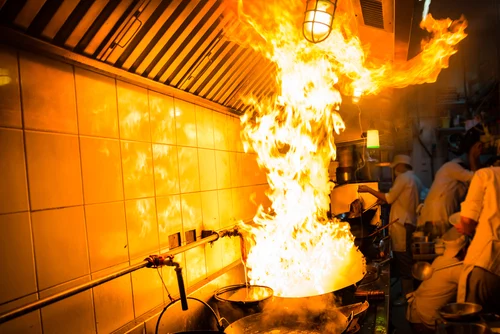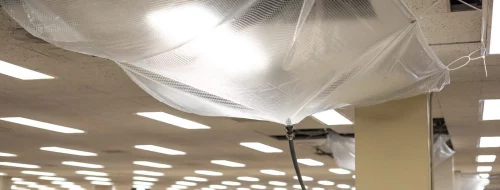Do you own, rent or manage a property with a fire sprinkler system? These essential tools can prevent damaging, dangerous fires from spreading in commercial and large residential properties, and hopefully you will never need yours to discharge.
When fire sprinkler systems do activate, they stop fires, but also damage the interiors, contents, and even structural integrity of your property. In addition to any fire damage, the sprinklers release a spray of dirty water that can contain bacteria, rust, oil, chemicals, and sediment. The spray saturates everything it touches with a smelly, contaminated, staining mess.
A fire alone is scary enough, but dealing with fire sprinkler discharge as well can be overwhelming. Thankfully, there is 24/7 emergency help available for Chicago area property owners. As experts in both fire and water damage restoration, we know how to handle these complex situations. In this article, we will explain the many ways that fire sprinklers can impact your property, and the best ways to get life back to normal at your business, office, or apartment building.
What Causes Fire Sprinklers To Go Off?
There are numerous reasons why fire sprinklers can discharge. Beyond an actual fire, here are some of the most common:
- Old sprinkler system pipes and heads can rust, corrode, and leak
- New systems can be installed incorrectly
- Fittings that are overly tightened or sprinkler heads that are not fitted correctly can leak
- Remodeling your property may accidentally damage your system
- Sprinklers located too close to heat sources may go off due to incorrectly sensing a fire
- Cold winter weather can freeze and rupture your system pipes.
- Human errors like hanging items from the sprinkler, damaging it with equipment, or painting over it can cause leaks and other issues
Fire sprinklers are a specialized system, and your maintenance team should use a qualified company to handle any repairs or updates. However, even well-maintained sprinkler systems can experience issues. If your sprinkler system discharges for any reason, here is what you need to know about the next steps to take.
Why You Should Not Clean Up Fire Sprinkler Discharge Yourself
No matter the cause, when a fire sprinkler head discharges, it soaks the walls, flooring, furniture and equipment in your home or business. On average, a fire sprinkler uses almost 350 gallons of water to control a fire – this is not a small mess to tackle on your own. This water, plus any soot and smoke left behind from a fire, can be a dirty and dangerous combination, and mold can start growing in as little as 24 hours.
If you don’t thoroughly mitigate fire and water damage right away, you are risking serious problems to the health of building residents, and the structural integrity of the building itself. Successfully cleaning up water damage from any source is a complex process, and an experienced water damage restoration specialist has the team, tools, and knowledge to do it right – right away.
At McMahon Services and construction, we can be on-site quickly to start the mitigation process. We will remove the water, and any damaged materials that can’t be salvaged. We will then start the process of cleaning, sanitizing, deodorizing, and drying your entire facility. As industry experts, we use techniques, equipment, and products that will restore both the damage you can see, and invisible problems like hidden moisture. During the entire restoration process, we monitor the humidity levels at your property, ensuring that the cleaning and drying process is safe and complete before any reconstruction work is started.
Additionally, we have experience partnering with insurance agents and adjusters. We can work as a team to ensure that the true extent of your loss is understood, and that you receive fair coverage for your loss.
Fast action and our specialized industry equipment and knowledge will make it possible to salvage more and replace less, allowing you to get back to business as usual as quickly as possible. From Evanston to Oak Park, we are here to help property owners handle fire sprinkler damage – contact us today to see how we can help you.








0 Comments